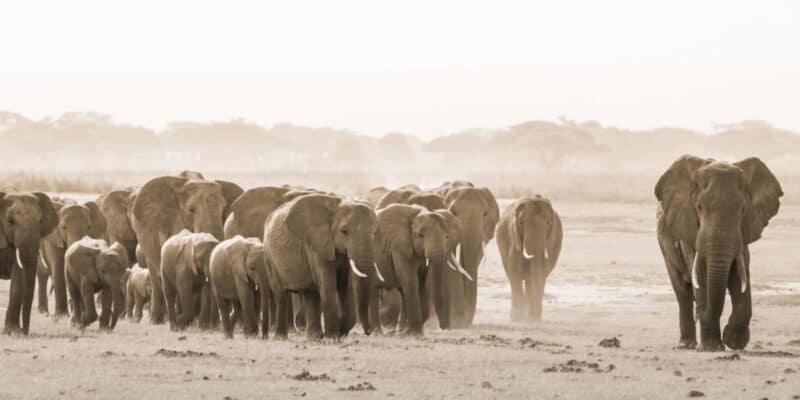Researcher Olga Isupova has just developed an algorithm that photographs and analyses large areas to identify elephants. Coupled with a satellite, the British scientist's tool is designed to monitor African elephants, which are being decimated by poachers at the rate of one every 15 minutes, according to the Lindbergh Foundation.
Artificial intelligence products improve wildlife conservation in Africa. The latest breakthrough in this field is the work of Dr Olga Isupova. The British researcher has developed a life-saving algorithm for African elephants. This tool allows a satellite to scan large areas of land, such as savannah, grassland or forest, in a short time. The system collects nearly 5,000 square kilometres (km2) of photos highlighting elephants. The large size of African elephants makes them easier to spot. The results provided by the tool are then compared with those provided by human counting.
“The programme counts the number of elephants by itself, which no longer puts the people who used to do this task in danger. The animals are no longer disturbed and the data collection process is more efficient,” explains Olga Isupova. Supporting the collaboration between technology and human action in the fight against poaching, the researcher intends to further develop her invention and eventually extend it to monitoring footprints, animal colonies or counting smaller species.
African elephants, animals in danger of extinction
Olga Isupova’s discovery comes against the backdrop of the decline of African elephants. In its new red list of endangered animals, published on March 25th, 2021, the International Union for Conservation of Nature (IUCN) states that poaching and deforestation are exposing the African forest elephant to a “critical” danger of extinction. The population of the pachyderm has fallen by 86% in 30 years. The population of savanna elephants (Loxodonta Africana) has plummeted by at least 60% in the last 50 years, and the species is now classified as ‘endangered’.
This situation is prompting researchers to develop more technologies similar to Olga Isupova’s. After a report found that an elephant is killed by a poacher every 15 minutes in Africa, the US-based Lindbergh Foundation teamed up with technology company Neurala to design an artificial intelligence program capable of tracking poachers. Presented on May 17th, 2017, the drone-equipped system can geo-locate potential intruders in reserves by day or night and alert rangers in real time.
Boris Ngounou







